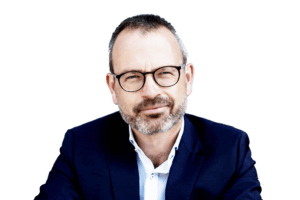Opinion
The Valley of Life: Think big and pick the low-hanging fruits!
Søren Bregenholt
This article is more than 5 years old.

An outbreak of activity (photo: Pixabay)
While the COVID-19 outbreak has understandably catapulted healthcare to the very top of the political agenda, the same goes for the somewhat broader topic of life science, but for at least two different reasons.
Game-changing pandemic
The first one is obvious. Everyone looks to life science for a cure or a vaccine, and the global race to provide COVID-19 remedies has directed very substantial public and private interest and resources to life science all over the globe. Several Danish and Swedish companies and institutions are actively involved in this race!
The second and interrelated reason relates to the economic and financial consequences of the pandemic, which has shaken and threatened several vital industries and their supply chains. This includes tourism, aviation, hotels and restaurants, leisure, and many other industries. Consequently, less vulnerable and more crisis-resistant industries, such as life science, also become increasingly interesting from a political perspective.
Time to restrategise?
Fortunately, life science has a well-established stronghold in the Nordics – particularly in Denmark and Sweden. Both countries have recently adopted national life science strategies, but following the COVID-19 pandemic, several of the key industry, policy and academia stakeholders in Danish life science now agree that it might be a good idea to revisit the national Danish life science strategy in order to make it even more ambitious.
Life science is moving up the ladder from being important to critically important in securing the health of our fellow citizens and reinitiating the growth of our economy.
Regional perspective
One of the most obvious, easy, and less costly ways to make the national Danish life science strategy more ambitious is to embrace the regional perspective and develop, strengthen, and promote the Danish-Swedish life science cluster, Medicon Valley.
Both countries are innovation leaders in Europe. Their high-ranking universities have a long history of academic excellence and public-private partnership within life science, and the cluster is home to world-class research facilities, valuable health data, and a vibrant ecosystem of life science start-ups.
A little extra effort
Today, we are not picking all the low-hanging fruit and embracing life science in southern Sweden systematically and strategically when developing and promoting Danish life science. With just a little extra effort and a little more willingness in Copenhagen and Stockholm, we could do so much more.
Together we could convincingly position the Nordics as the leading life science cluster in northern Europe to the benefit of patients, citizens, and scientists alike. Let’s make sure our future Danish life science strategy reflects that!

About
Søren Bregenholt
As the chairman of the Medicon Valley Alliance – the gold-labelled Danish-Swedish life science cluster organisation – Søren will address current trends and challenges in the sector.










































